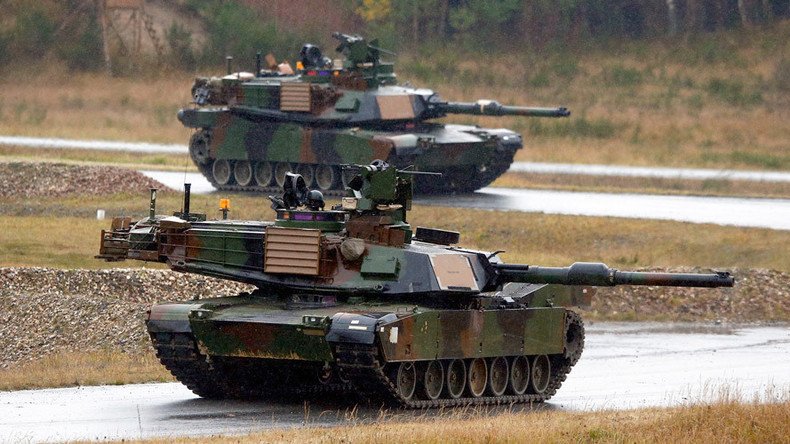Unfounded claims? NATO ‘categorically rejects’ it threatens Russia

The North Atlantic bloc has “categorically” denied it poses a security threat to Russia despite the alliance’s significant expansion in the Baltics and Eastern Europe, where it stages massive military drills.
"We categorically reject totally unfounded claims that NATO and its policies constitute a security threat” to Moscow, NATO spokesperson Oana Lungescu said on Tuesday.
"NATO's enlargement is not directed against anyone," Lungescu said and each sovereign nation "has the right to choose for itself whether it joins any treaty or alliance." She was apparently referring to the recent decision of the alliance to invite Montenegro to join NATO.
'We're ready, we will defend you': #NATO ramps up war rhetoric, plans more drills http://t.co/8NFrvvRtOlpic.twitter.com/ElMNdw0CEa
— RT (@RT_com) October 8, 2015Lungescu added NATO is still studying Russia’s security strategy for 2016, which was presented on Thursday. The strategy named NATO expansion towards Russian borders as one of the key security threats.
READ MORE: Russia’s national security strategy for 2016 in 9 key points
Constant militarization and arms build-ups are unfolding in regions neighboring Russia, the document said, adding: “The principles of equal and indivisible security” are not being respected in the Euro-Atlantic, Eurasian and Asia-Pacific regions.
NATO’s Baltic Piranha ‘assurance drills’ kick off in Lithuania http://t.co/uk1kIZ4Otppic.twitter.com/JOWEhlMuRN
— RT (@RT_com) October 2, 2015However, the document also said Russia is still interested in a fair dialogue and good relations with NATO, the US and the EU. Under the partnership, it’s important to enhance mechanisms “provided by international treaties on arms control, confidence-building measures, issues related to non-proliferation of weapons of mass destruction, the expansion of cooperation in the fight against terrorism, the settlement of regional conflicts,” it said.
On Monday the Pentagon said that Moscow has no reason to consider the US a threat to its national security.
"They have no reason to consider us a threat," Pentagon spokesman Capt. Jeff Davis told reporters. "We are not looking for conflict with Russia.”
"We have our differences ... but it's fundamentally wrong to look at the United States as a threat to Russia," Davis added.
READ MORE: NATO to create new HQs in Hungary & Slovakia, boost response forces – Stoltenberg
NATO has significantly increased its military presence along Russia’s borders, including in the Baltic States and Eastern Europe, since Russia’s reunification with Crimea in 2014 and the outbreak of conflict in eastern Ukraine. The alliance accuses Russia of providing support to Ukrainian rebels, who rejected the armed coup in Kiev.
NATO kicks off naval drills in Black Sea with Ukraine http://t.co/R40Nfv27Pmpic.twitter.com/AlBImvoKCe
— RT (@RT_com) August 31, 2015In late August and September 2015, NATO conducted the biggest airborne drills in Europe since the end of the Cold War. About 5,000 soldiers from 11 NATO member states participated in the “simultaneous multinational airborne operations.”
READ MORE: 36,000 troops, 200 aircraft & 60 vessels: NATO launches biggest war games in 13 years
Probably the biggest drills since 2002 were held by the alliance in October 2015. Dubbed “Trident Juncture 2015”, the exercises included 36,000 international troops as well as more than 60 warships and about 200 aircraft from 30 states, including non-NATO nations.
Along with NATO member states, seven more partner nations took part in the drills: Australia, Austria, Bosnia and Herzegovina, Finland, the Republic of Macedonia, Sweden and Ukraine.












